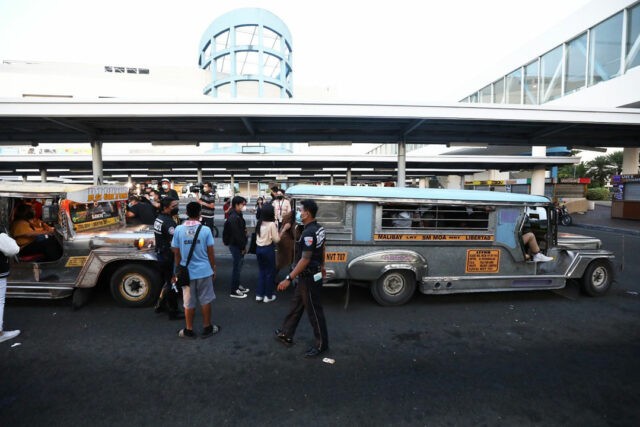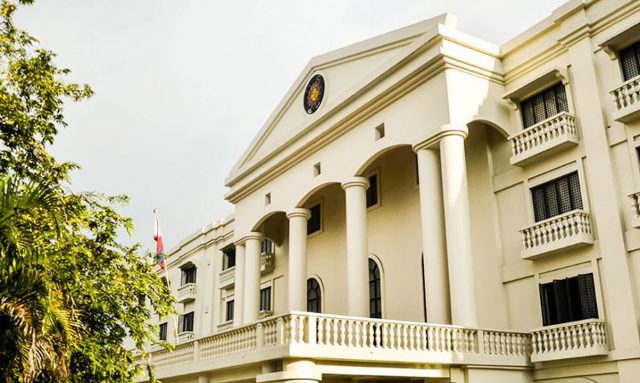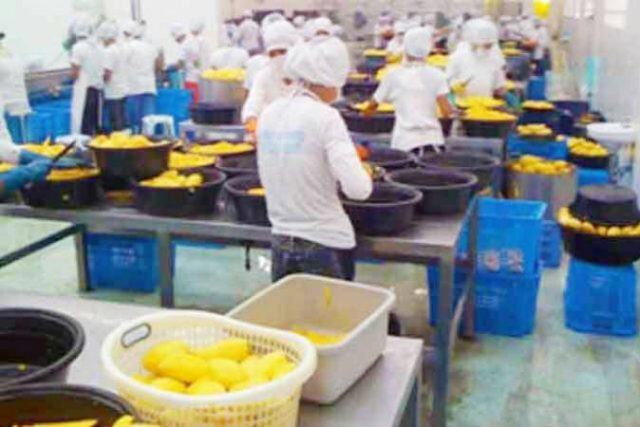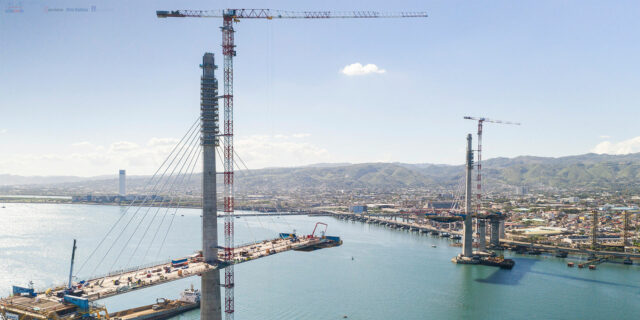By Alyssa Nicole O. Tan, Reporter
THE Senate’s P5.268-trillion budget bill has been sponsored out of committee for plenary debate, keeping the spending plan on track for approval sometime before the end of the year.
Senator Juan Edgardo M. Angara, who chairs the Senate Finance Committee, sponsored for floor debate House Bill 4488 with the issue of Committee Report 10.
He noted that the spending plan closely conforms to the eight-point near-term socioeconomic agenda as set out by the medium-term fiscal framework, supporting the major priorities of the Marcos Administration.
According to the budget bill, the two departments dealing with agriculture — the Department of Agriculture (DA) and the Department of Agrarian Reform — will receive a combined P179.762 billion, up 39.5% from 2022 funding levels.
Mr. Angara said the committee affirmed the government’s funding for Farm-to-Market Road projects, with money to be directly released to the Department of Public Works and Highways (DPWH) to fast-track the process.
Changes to the DA’s proposed budget support the establishment of cold examination facilities to facilitate the inspection of containerized agri-fishery products, which are expected to improve food safety and deter smuggling.
Funds will also be provided to establish the DA-wide Field Inspectorate Office, several hatcheries, and the research and development extension or applied research activities of the National Fisheries Research and Development Institute.
Also funded in the bill were efforts to contain the African Swine Fever outbreak, as well as the Dairy Industry Development Program of the National Dairy Authority.
The bill ensures the continued implementation of the Pantawid Pamilyang Pilipino Program of cash transfers for the poor, as well as other subsidies for food, transportation, and medical care, Mr. Angara said. He added that the bill supports the emergency employment programs of various government agencies.
Coming in for increased funding was the Department of Social Welfare and Development, for operations associated with the Centenarians Act, the Juvenile Justice and Welfare Council, and the National Anti-Poverty Commission.
“We are also cognizant of the immense damage caused by recent typhoons and earthquakes, and the difficulties hard-hit communities have to endure just to recover,” Mr. Angara said.
“While no government has the power to change geography or the weather, ours aims to do its utmost to prepare our communities and have funds on standby to help the affected communities to get back up again if ever they are hit by natural calamities,” he added.
The committee affirmed increased appropriations for the Quick Response Funds of various government offices, ensuring resources for the National Disaster Risk Reduction Management Fund and the Marawi Siege Victims Compensation Fund.
The committee also cleared funding to facilitate the return to face-to-face schooling.
“We need to make sure our students are safe when they return to the classroom,” Mr. Angara said. “Even after almost two and a half years of being in lockdown, their education should be of high quality, and their re-entering school will be beneficial.”
The education-related funding supports the Special Training for Employment Program, the Training for Work Scholarship Program, and the Tulong Trabaho Scholarship Program.
These will be overseen by the regional offices of Technical Education and Skills Development Authority (TESDA).
Additional funds were also provided to enhance the performance of students, which, Mr. Angara said, worsened during the pandemic. According to the World Bank, learning poverty in the Philippines has become severe, with 90% of 10-year-old students unable to read or understand a simple story or text.
Funds were set aside to upgrade teacher training, to fill vacant teaching and non-teaching positions, and to ensure availability of textbooks and instructional materials.
“The return to face-to-face classes is among the clearest signs that the return to normalcy is near,” the senator said. “But this should not mean a reversion to complacency.”
Some funding for the Department of Transportation (DoTr) was realigned to support the social support component of the Public Utility Vehicle (PUV) modernization program.
“This includes such initiatives as the DoTr-TESDA Tsuper Iskolar Program and the DoTR-DoLE EnTSUPERneur Program —where affected PUV drivers can learn new skills,” Mr. Angara said.
The bill supports the development and rehabilitation of various airports, the enhancement of safety within the maritime sector, and the continued improvement of the railway system.
Funding was increased for the Network Development Program of the Department of Public Works and Highways (DPWH). The bridge-building and improvement program will also receive significant funding, as well priority road projects under the convergence and special support program.
Funding was provided for the operations of various Department of Health regional hospitals, specialty hospitals, several health centers and other programs.
The committee also greenlit funding to increase the carrying capacity of state university medical colleges, support state universities seeking to introduce medical programs, and finance medical scholarships.
All state universities and colleges will also receive additional funding for research and innovation programs.
“We also support the digital transformation proposal of our government so that it can provide services to the people faster and more effectively,” Mr. Angara said.
He noted funding for the Department of Information and Communications Technology’s (DICT) programs to digitize government transactions via the eGovernment Program, the Integrated Business Permits and Licensing System, and the National Government Data Center Infrastructure Project.
Funds were also allocated to the National Broadband Plan and the Free Internet Access Program.
A special provision also allows the DICT to offer incentives to local government unit community service providers to develop and finance the last-mile connection of schools, resettlement sites, transport hubs, and other public spaces.
Mr. Angara said the National Economic and Development Authority will also be receiving “significantly more funding this coming year” to implement the Philippine Innovation Act.
Mr. Angara said more funding can be expected for the Department of Science and Technology and its agencies, as well as the Philippine Space Agency.
“It is so important to strengthen the economy, and the budget is an instrument to achieve it, so that its vitality generates employment and taxes,” Mr. Angara said. “All of the above call for smart budgeting, where nothing is wasted or delayed, in budget execution, when the hope and promise these appropriations bring are waylaid by procurement anomalies.”












